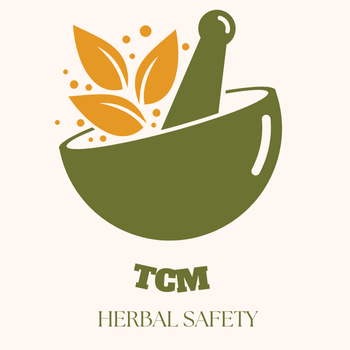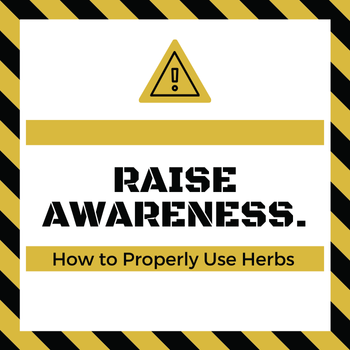Herbal Safety 101: Understanding the Safe and Effective Use of Chinese Herbs
 Why Chinese Herbs Are Effective When Used Correctly
Why Chinese Herbs Are Effective When Used Correctly
Chinese herbal medicine has been practiced for thousands of years and remains a cornerstone of Traditional Chinese Medicine (TCM). Unlike pharmaceuticals that often work through isolated compounds targeting specific symptoms, Chinese herbs work holistically, supporting the body's natural balance and addressing the root causes of health concerns.
When used correctly, Chinese herbs are safe, effective, and work in harmony with the body’s physiology. However, improper use—such as incorrect dosages, poor-quality herbs, or misunderstanding how herbs interact with the body—can lead to reduced effectiveness or unwanted side effects.
This guide provides an in-depth look at herbal safety, quality control, preparation methods, dosage considerations, and herb-drug interactions, ensuring consumers can make informed decisions and experience the full benefits of Chinese herbal medicine.
Understanding Herbal Safety in Traditional Chinese Medicine (TCM)
One of the most important principles in TCM is that herbs should not be used in isolation. Unlike Western herbal medicine, which often prescribes single herbs for specific conditions, Chinese medicine relies on formulas that combine herbs strategically to create balance and synergy.
Why Some Herbs Must Be Used in Formulas
Many Chinese herbs have potent properties and can cause undesired effects if used alone. However, when properly formulated, these effects are neutralized or enhanced for maximum benefit.
✅ Example:
- Fu Zi (Aconite Root) is highly regarded for its ability to warm the body and strengthen Yang energy. However, it is toxic in its raw form. TCM preparation methods include boiling, soaking, and processing to safely reduce toxicity while retaining its therapeutic properties.
- In formulas like Shen Fu Tang (Ginseng and Aconite Decoction), Fu Zi is balanced with Ren Shen (Ginseng) to boost circulation and vitality while ensuring safe and effective use.
✅ Example:
- Ban Xia (Pinellia Rhizome) is used for digestive issues and phlegm but can be irritating in its raw form. Sheng Jiang (Fresh Ginger) is traditionally used to process Ban Xia, neutralizing its harsh properties while enhancing its effectiveness.
 Why Some Herbs May Not Work for Everyone
Why Some Herbs May Not Work for Everyone
Consumers sometimes report that herbs don’t work for them. This can happen for several reasons:
Incorrect Diagnosis – Unlike Western medicine, TCM considers the body's constitution, pattern, and imbalances. If the wrong herb is used for an incorrect diagnosis, it will not be effective.
Low-Quality Herbs – Many mass-produced herbs contain pesticides, fillers, or poor-quality raw material, reducing their potency.
Improper Dosage or Preparation – Some herbs require specific preparation methods (boiling, steaming, soaking) to be effective. Simply taking raw or powdered herbs may not yield results.
Short-Term Use for Chronic Conditions – Some herbs require consistent, long-term use to achieve noticeable benefits. He Shou Wu (Fo-Ti), for example, is used over months for its kidney and anti-aging properties.
By understanding why herbs work and why they sometimes don’t, consumers can choose the right herbs, use them correctly, and experience their full benefits.
 Choosing High-Quality and Authentic Chinese Herbs
Choosing High-Quality and Authentic Chinese Herbs
The effectiveness and safety of herbs depend heavily on quality. Many low-grade herbs on the market contain fillers, heavy metals, pesticides, or chemical residues. Consumers must ensure they purchase from reputable sources that prioritize authenticity and purity.
What to Look for When Buying Chinese Herbs
At 1st Chinese Herbs, we are committed to transparency and quality, ensuring that every herb we provide meets the highest safety and potency standards.
1. Geo-Authentic Sourcing
Some herbs have superior medicinal qualities when grown in specific regions due to climate, soil, and growing conditions.
✅ Example:
- Dang Shen (Codonopsis Root) from Shanxi Province is far more potent than varieties grown in different regions.
- Ling Zhi (Reishi Mushroom) from Anhui Province is renowned for its high polysaccharide content, enhancing its immune-boosting properties.
2. Lab-Tested for Purity
We ensure that all our herbs are tested for pesticides, heavy metals, and contaminants. Some herbs, like Ling Zhi (Reishi), absorb environmental toxins, making third-party testing essential for safety.
3. Proper Herbal Processing for Maximum Potency
Certain herbs require specific preparation techniques to unlock their full benefits.
✅ Example:
- He Shou Wu (Fo-Ti) must be processed (Zhi) by steaming with black beans to enhance kidney-nourishing properties and reduce its natural laxative effects.
4. Whole, Unadulterated Herbs – No Fillers or Artificial Additives
We ensure that our herbs are free from unnecessary fillers, sulfites, or artificial extracts.
✅ Example:
- Gou Qi Zi (Goji Berries) should be naturally sun-dried without added sugars or preservatives to maintain their full.

